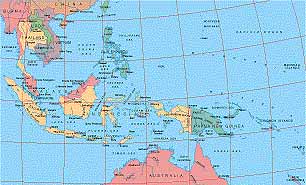[L]et's look at what Columbus actually said. The admiral wrote a letter, in Spanish, detailing his discoveries while off the Azores during his homeward voyage. He forwarded this to the royal court, then at Barcelona, shortly after his storm-driven arrival in Lisbon on March 4, 1493. The original manuscript has not survived, but a printed copy made shortly after its receipt has. In the first paragraph Columbus says "In 33 days I passed from the Canary Islands to the Indies" (en 33 días pasé de las islas de Canaria a las Indias). His first reference to the inhabitants comes in the second paragraph: "To the first [island] which I found I gave the name San Salvador . . . the Indians call it Guanahaní" (A la primera que yo hallé puse nombre San Salvador . . . los Indios la llaman Guanahaní). In all he makes six references to India or the Indies, and four to Indios. Nowhere in the letter does he use a phrase resembling una gente in Dios. He says little of the spiritual beliefs of the people--at one point he states, "These people practice no kind of idolatry; on the contrary they firmly believe that all strength and power, and in fact all good things are in heaven, and that I had come down from thence with these ships and sailors;" at another he says "they are very ready and favorably inclined" to be converted to Christianity--but that's about it.
The Columbus Letter Translation
Because my undertakings have attained success, I know that it will be pleasing to you: these I have determined to relate, so that you may be made acquainted with everything done and discovered in this our voyage. On the thirty-third day after I departed from Cadiz, I came to the Indian sea, where I found many islands inhabited by men without number, of all which I took possession for our most fortunate king, with proclaiming heralds and flying standards, no one objecting. To the first of these I gave the name of the blessed Saviour, on whose aid relying I had reached this as well as the other islands. But the Indians call it Guanahany.
I knew Columbus was the source of "Indian," of course, but I thought he first used it in some letter lost the mists of in time. Now we have conclusive evidence: a quote from the actual source document.
This should clear up the silliness about "un gente in Dios" and any other postulated origin of the word "Indian." It comes from the Indian islands--i.e. the East Indies.
China, not India
The only flaw in analyses about the origin of "Indian" is that people keep claiming Columbus was trying to reach India. From everything I've read, this is wrong. Columbus was trying to reach China, not India. Ever since the travels of Marco Polo, the West knew of China as a country of wealth and splendor.
Apparently the concept of "Indies" has befuddled many people. If you look at a map, the East Indies are southeast of China--i.e., closer to China than to India. If you were approaching China from the south, as Columbus thought he was doing, you'd expect to run into these islands.
Columbus made his goal pretty clear in the same letter:
Tim Giago and Russell Means are two who have gotten the origin of "Indian" wrong. For a critique of their claims, see "Indian" vs. "Native American."
Below: The East Indies southeast of China.


No comments:
Post a Comment